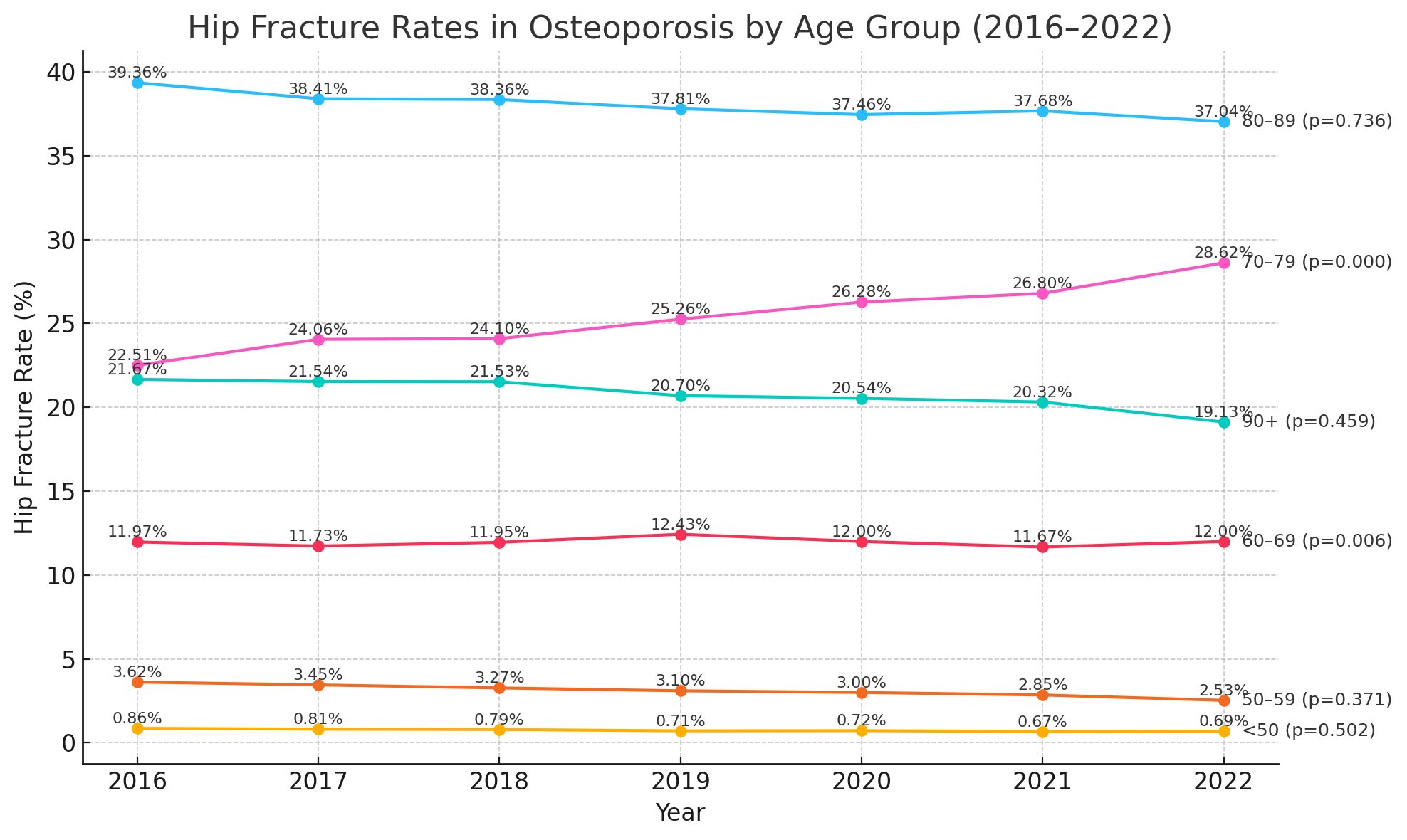Session Information
Date: Sunday, October 26, 2025
Title: (0357–0386) Patient Outcomes, Preferences, & Attitudes Poster I
Session Type: Poster Session A
Session Time: 10:30AM-12:30PM
Background/Purpose: Hip fractures in patients with osteoporosis are a major contributor to morbidity, mortality, and healthcare costs. While classically associated with the oldest patients, emerging trends suggest that younger elderly adults may now bear a growing share of the burden. We evaluated age-stratified trends in hip fracture hospitalizations and in-hospital mortality among osteoporotic adults in the United States.
Methods: We conducted a retrospective cohort study using the National Readmissions Database (NRD) from 2016 to 2022. We included adult patients hospitalized with osteoporosis and identified those with a primary discharge diagnosis of hip fracture using ICD-10 codes. Patients were stratified into age groups: < 50, 50–59, 60–69, 70–79, 80–89, and ≥90 years. Survey-weighted logistic regression was used to evaluate temporal trends in hip fracture hospitalizations and in-hospital mortality, comparing 2022 to 2016 within each age group.
Results: Among 5,040,169 weighted osteoporosis-related hospitalizations, 392,615 (7.8%) were for hip fractures. The 70–79 age group showed the most significant increase in hip fracture hospitalizations, rising from 22.5% in 2016 to 28.6% in 2022. Odds of hip fracture rose by 13% in this group (OR: 1.13, 95% CI: 1.06–1.20, p < 0.001). The 60–69 group also demonstrated a significant increase (OR: 1.12, p = 0.006) Figure 1. Despite these increases, in-hospital mortality rates remained unchanged across all groups Figure 2.
Conclusion: From 2016 to 2022, adults aged 70–79 with osteoporosis experienced a significant rise in hip fracture hospitalizations without increased in-hospital mortality, reflecting improved acute care. Proactive screening, earlier risk assessment, and fall prevention efforts targeting adults in their 60s and 70s may be critical in curbing the growing hospitalization burden in this increasingly vulnerable population Figure 3.
To cite this abstract in AMA style:
Bhimani S, Maligireddy A, Bhimani S, Bhatt B. Hip Fracture Hospitalization Trends in Osteoporotic Patients (2016–2022): National Data Insights [abstract]. Arthritis Rheumatol. 2025; 77 (suppl 9). https://acrabstracts.org/abstract/hip-fracture-hospitalization-trends-in-osteoporotic-patients-2016-2022-national-data-insights/. Accessed .« Back to ACR Convergence 2025
ACR Meeting Abstracts - https://acrabstracts.org/abstract/hip-fracture-hospitalization-trends-in-osteoporotic-patients-2016-2022-national-data-insights/


.jpg)
.jpg)